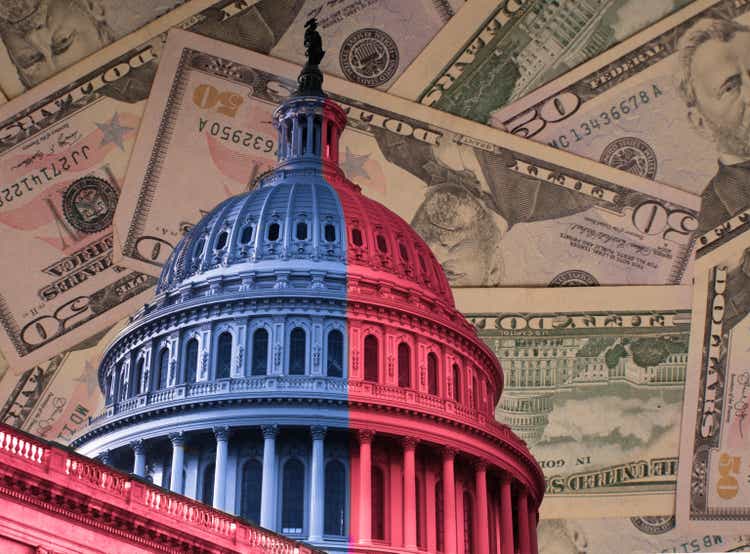United States loses top rating at Fitch; long-term IDR cut to AA+ (updated)
Fitch #Fitch


Douglas Rissing/iStock via Getty Images
Fitch Ratings downgraded on Tuesday the United States’ long-term rating to AA+ from AAA, reflecting expected fiscal deterioration, a growing debt burden, and the erosion of governance related to its peers. The Fitch rating now aligns with the S&P Global Ratings, which cut its rating for the U.S. in the 2011 after a government standoff over debt.
The credit ratings firm took the U.S.’s long-term foreign currency Issuer Default Rating off of rating watch negative and assigned a stable outlook. Fitch placed the rating on watch negative in May, when Congress was caught in a struggle over the debt ceiling.
The government’s bipartisan agreement to suspend the debt limit until January 2025 wasn’t enough to calm Fitch’s fears. “The repeated debt-limit political standoffs and last-minute resolutions have eroded confidence in fiscal management,” it said.
“In addition, the government lacks a medium-term fiscal framework, unlike most peers, and has a complex budgeting process. These factors, along with several economic shocks as well as tax cuts and new spending initiatives, have contributed to successive debt increases over the last decade,” the Fitch statement said.
Fitch expects the U.S. general government deficit to rise to 6.3% of GDP in 2023 from 3.7% in 2022, rising to 6.9% of GDP in 2025.
Treasury Secretary Janet Yellen said she “strongly” disagrees with the ratings decision, saying that Fitch uses outdated data. Many of the measures that the ratings company uses, “including those related to governance, have shown improvement over the course of the administration, with the passage of bipartisan legislation to address the debt limit, invest in infrastructure, and make other investments in America’s competitiveness,” she said. (Added at 5:57 PM ET.)
Several strengths support the still highly rated debt. Those include the U.S.’s large, advanced, well-diversified, and high-income economy, supported by a dynamic business environment, Fitch said. Importantly, the U.S. dollar remains the world’s “preeminent reserve currency.”
Dear readers: We recognize that politics often intersects with the financial news of the day, so we invite you to click here to join the separate political discussion.